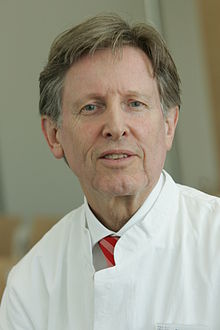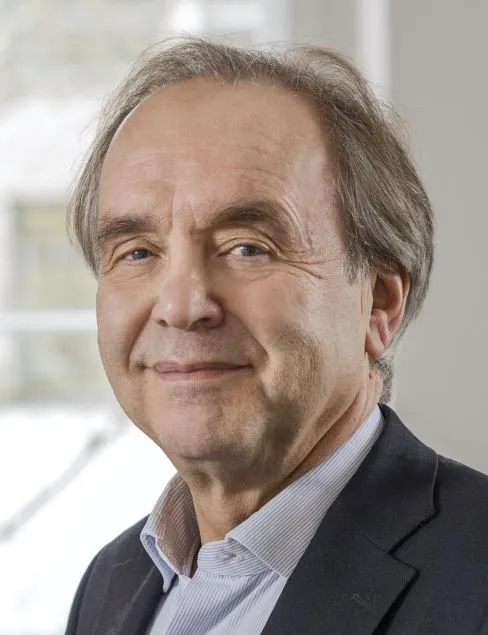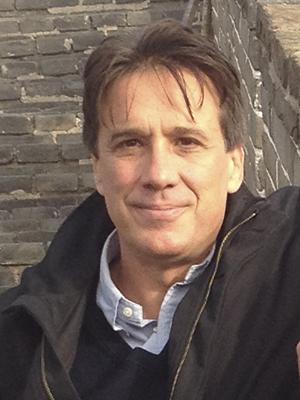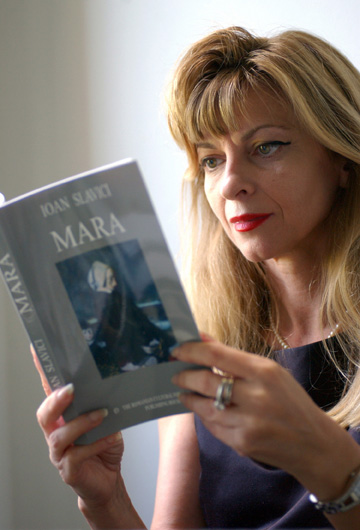Professor Peter SCHLOSSER, Vice president and Vice provost of Global Futures at Arizona State University, USA
Professor Peter SCHLOSSER, PhD
Peter Schlosser is Vice president and Vice provost of Global Futures at Arizona State University. He is also a fellow of the American Association for the Advancement of Science (2011), the American Geophysical Union (2011), the German National Academy of Sciences Leopoldina (2016) and the World Academy of Art and Science (2023). Schlosser research and teaching now focuses on planetary systems and options for healthy global futures. Also, he has conducted research from the Arctic Ocean to the ice shelves of Antarctica. He has acted as co-chair of five of four Arctic Observing Summits (2013, 2014, 2016, 2018, 2020) and has been co-chair of the Science Steering Group, ISAC International Study of Arctic Change since 2010.


Professor Emeritus Michael MOLLS, Director of the Institute for Advanced Study, Technical University of Munich.
Professor Emeritus Michael MOLLS
Michael Molls was the director of the Clinic for Radiotherapy and Radiation Oncology at TUM from 1992 to 2014. Further activities include serving as member of the Board of Management and the Supervisory Board at the TUM hospital “Rechts der Isar” and head of the Tumor Centre (Tumorzentrum, TZM) München of both Ludwig-Maximilians-University (LMU) and TUM. He was particularly committed to process, result, and structure quality of interdisciplinary oncology. As president of the German Society for Radiation Oncology (DEGRO) and head of the DEGRO Academy, Michael Molls contributed to the introduction of interdisciplinary guidelines for the treatment of cancer patients (in cooperation with the German Cancer Society) and he developed a curriculum for specialization in radiation oncology based on European recommendations. He promoted the integration of radiobiological and physical-medical research in radiation oncology. As a speaker of the TUM Senior Excellence Faculty and with the colleagues from “TUM Emeriti of Excellence”, Michael Molls founded the “TUM Sustainability Forum” in 2016. The Forum organizes interdisciplinary symposia (Sustainable Risk Management, Sustainable Development in Africa, Violated Earth – Violent Earth, Discovery of X-Rays – a Big Bang for Science, Circular Economy, etc.). Since 2020, Michael Molls is the director of the TUM Institute for Advanced Study. Michael Molls is the author of approximately 400 reviewed publications and editor of textbooks, monographs and series of books on radiation oncology, radiation biology, medical physics, and recently on the topic of sustainability.
Professor Klaus MAINZER, Technical University of Munich, President European Academy of Sciences and Arts (EASA), Salzburg, Austria
Professor Klaus MAINZER, PhD
Klaus MAINZER is the president of the European Academy of Sciences and Arts and the author of the widely translated, cited, and reviewed book Thinking in Complexity. Klaus MAINZER was a member of the Advisory Board of the TUM Institute for Advanced Study (IAS) (2009-2016), Principal Investigator (PI) of the TUM Cluster of Excellence Cognition in Technical Systems (CoTeSys) (2009-2014) and a member of the Editorial Board of the International Journal of Bifurcation and Chaos in Applied Sciences and Engineering (2005-2015). He is a member of the Research Center for Education and Information (Beijing University), the Academia Europaea (London), the European Academy of Sciences and Arts (Salzburg) and there Dean of the Class for Natural Sciences 2018–2019, member of the German Academy of Science and Engineering (acatech), there spokesman for the work project "Responsibility" 2018–2019 and since 2018 spokesman for the working group "Basic Questions." Mainzer was a member of the Board of Trustees of the Daimler and Benz Foundation (Ladenburg) (1998–2008) and has been Deputy Chairman of the Board of Trustees of the Udo Keller Foundation Forum Humanum (Hamburg) since 2014. He gave guest lectures or carried out visiting professorships in Brazil, China, India, Japan, South Korea, United States and Russia. He was a visiting scientist at the Euler International Mathematical Institute (St. Petersburg), the Hausdorff Research Institute for Mathematics (Bonn) and the Leibniz Center for Informatics at Schloss Dagstuhl. In the technical sciences, Mainzer advocates increased basic research into verification programs to overcome the blind spots of statistical learning algorithms (machine learning) in AI. Complex Systems in the Internet of Things (e.g., Smart Mobility, Industry 4.0) lead to a data explosion (Big Data), which raises security and responsibility issues.


Professor Radu GROSU, Professor of Cyber-Physical Systems, Vienna University of Technology
Professor Radu GROSU
Radu Grosu is a full professor and the head of the Institute of Computer Engineering at the Faculty of Informatics of the TU Wien. He is also head of the cyber-physical-systems group within the Institute of Computer-Engineering, and a research professor at the Department of Computer Science of the State University of New York at Stony Brook (USA). Radu earned his PhD in computer science from the Technical University Munich (Germany). He was a research associate at the Department of Computer and Information Science of the University of Pennsylvania, and assistant and associate professor at the Department of Computer Science at the State University of New York at Stony Brook (USA), where he co-directed the concurrent-systems laboratory and co-founded the systems-biology laboratory. Radu’s research interests include modelling, analysis and control of cyber-physical systems and biological systems. The application’s focus includes distributed automotive and avionic systems, IoT, autonomous mobility, green operating systems, mobile ad-hoc networks, cardiac and neural networks, and genetic regulatory networks. Radu received the National Science Foundation Career Award, the State University of New York Research Foundation Promising Inventor Award, the Association for Computing Machinery Service Award. He is an elected member of the International Federation for Information Processing, Working Group 2.2.
Professor Ileana Alexandra ORLICH, President’s Professor of Romanian studies and comparative literature in the School of International Letters and Culturesat Arizona State University, USA
Professor Ileana Alexandra ORLICH, PhD
Ileana Alexandra Orlich is President’s Professor of Romanian studies and comparative literature in the School of International Letters and Cultures. A distinguished global futures scholar in the Julie Ann Wrigley Global Futures Laboratory, Orlich is faculty affiliate in the School of Civic and Economic Thought and Leadership and Director of the Global Intensive Experience to Romania (2023). She is ASU's Professor of the Year (2011) and Centennial Professor (2001).
Her publications, which comprise ten monographs, more than twenty book translations with critical commentaries, numerous book chapters and more than one hundred refereed articles. She is a well-known speaker in China, South Korea, the Czech Republic, Hungary, Canada, Italy, France, Spain, the UK, and Romania on cultural, political and gender relations, nationalism and ethnic conflict in Central and Eastern Europe.
